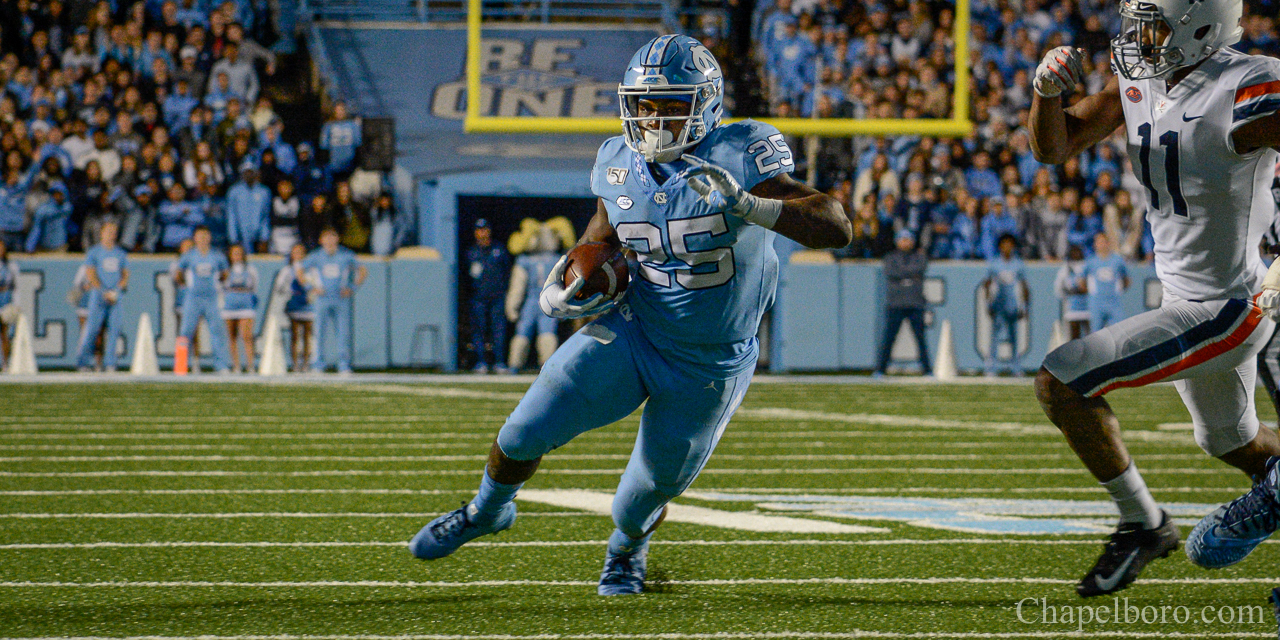CHAPEL HILL – UNC clinical instructor and academic advisor, Mary Willingham said the academic problems at Carolina and at colleges and universities across the country start with the NCAA.
“This NCAA cartel machine is doing us wrong in this country and doing our young people some damage,” Willingham said. “Meanwhile, these folks are in Indiannoplis—and around the country, coaches and administrators—are making tons of money off the backs of these young people, and it’s got to stop.”
Those comments were made during an interview Friday on the WCHL Morning News.
***Watch the Full Interview***
***Correction from the interview: The IRB is the Institutional Review Board, not the Internal Review Board.
She said the admission of guilt by the university, and namely UNC Provost Jim Dean, that there were holes in the academic system is not enough.
“I really encourage (Provost Dean) to talk to us about what we know—Jay and I and others in the Athletic Reform Group—and open the door and have a real open conversation, because that has yet to happen at our university,” Willingham said. “It’s a university for crying out loud. We should all be able to sit around the room and have honest conversation and debate about what we know.”
Provost Dean was quoted in a Bloomberg Business Week article saying “We made mistakes. Horrible things happened that I’m ashamed of. Student-athletes and other students, too, were hurt. The integrity of our university was badly damaged.”
History professor Jay Smith was in the interview as well and announced that he—in collaboration with Willingham—is writing a book that talks about the history of the academic scandal at UNC in the African and Afro-American studies department and the illiteracy problems at UNC and at colleges and universities across the nation.
Smith said he, too, wants to see something more than just words come from the recent allegations of UNC’s academic improprieties.
“There’s nothing qualitatively different from any number of statements Holden Thorp made over the past several years before he left,” Smith said. “Holden, too, was willing to acknowledge mistakes had been made and that we had to be held accountable for them. Though, at least it does, on their part, signal a new willingness to look at the past and consider which lessons need to be derived from the past. So that’s…that is somewhat heartening.”
Willingham has been seen by many as an enemy to the university when she shared her research. She received death threats and was even called a liar by Provost Dean when he said in a Business Week article “she’s said that our students can’t read, our athletes can’t read, and that’s a lie.” Later in the interview for the article with Business Week’s Paul Barrett, the Provost said he had misspoken and doesn’t think that she’s a liar.
Willingham said she didn’t release the information with the intention of taking down the university.
“I really am a Tar Heel,” Willingham said. “I know what’s heard to believe, but I love this place.”
She said she wants to see a change in the way student-athletes are taken care of at the university and how they are viewed within the system.
“We had a countless number of athletes that I worked with during my tenure—nearly seven years—in the program that left without a real degree,” Willingham said. “We still don’t talk about those guys. They took all these bogus paper classes, and they left the university still woefully underprepared for probably even a high school. That’s wrong, and we owe them. We need to bring them back, and we need to offer them the possibility of a real, legitimate education. That’s what we promised them in the first place.”
She said that she’s not even saying that students who can’t read at a college level don’t have a place at UNC, but that those who are at a disadvantage need to be protected.
“I’ve never said that athletes or any students at Carolina don’t belong at Carolina,” Willingham said. “It’s a public university; it’s a university of the people. But I think if we’re going to take students in, then we need to meet them where they’re at academically and bring them along. That’s all students.”
“I think we still have this, some sort of arrogance or some level of problem—I don’t know exactly where it comes from—because in 1795 we had an academy at the University of North Carolina for young men from the state who weren’t able to read in Greek and Latin,” Willingham said. “That academy lasted for a decade or a little bit more. Why don’t we just reopen the academy, and we could have the best football team and the best basketball team in the country. We could recruit whoever we wanted, and we could provide a real education.”
Thursday evening the News and Observer shared a letter that former interim dean of UNC’s College of Arts and Sciences and current Kenan Professor Emerita of Slavic Literatures, Madeline Levine wrote to Chancellor Carol Folt and Provost Jim Dean expressing her disappointment in the attack of the information shared by Willingham.
In the letter, she said she, too, saw evidence of students that’s were just pushed through the system and weren’t given a proper education.
Willingham said she expects this is just the first of many to follow in her push for academic reform.
“I have more than 2,000 emails,” Willingham said. “I’m hearing from people all over the country. They’re embarrassed; they feel some shame, because they don’t want to speak publically, and I’m certainly not going to bring anyone under the bus with me, because it’s not too pretty under here. But, nevertheless, I think that coming out and talking openly has given some people permission, and I think you’re going to hear from more people. I don’t think Dr. Levine’s going to be the only one stepping forward.”


